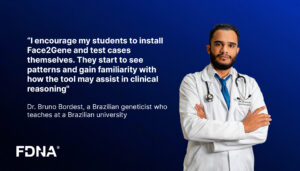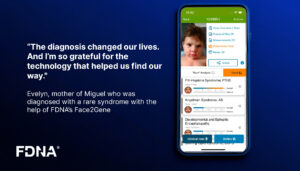The article describes how FDNA and the Murdoch Children’s Research Institute (MCRI) have partnered to enhance the diagnosis of rare diseases, emphasizing improved speed and accuracy. Integrating FDNA’s advanced AI technology with MCRI’s clinical expertise aims to streamline the identification of genetic disorders. This joint effort leverages FDNA’s Face2Gene platform, which uses facial analysis and deep learning to detect phenotypic markers of rare diseases. The partnership seeks to reduce diagnostic timelines and increase precision, benefiting patients with rare conditions by providing quicker, more accurate diagnoses and facilitating tailored treatment plans.

The Importance of Teaching Face2Gene to Pediatricians
In the world of rare genetic diseases, early diagnosis is often the key to better patient outcomes. However, the diagnostic journey can be long and complex, sometimes taking years before a definitive answer is found. Dr. Bruno Bordest, a Brazilian geneticist who teaches at the Universidade Federal de Mato Grosso, has been working to bridge […]

